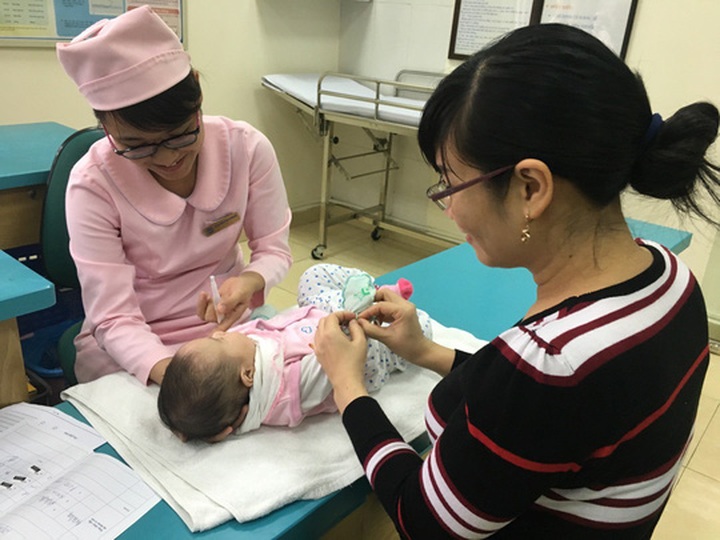
Photo for illustration. As many as 1.9 million children are suffering from malnutrition
One out of six children under five years old in Vietnam is malnourished. The malnutrition rate in ethnic minority groups doubled compared to Kinh people.
80.8% of the children lack zinc, 31.3% lack iron and 16% lack Vitamin A. The lack of nutrients can cause blindness, anaemia and impaired brain function.
"Our most recent survey in Simacai District, Lao Cai Province, showed that 60% of children under five are malnourished," Mai said. "This rate at some places are over 70%."
Director of SCI, Dragana Stricnic said that after 27 years in Vietnam, they realised that ethnic mothers let their children eat rices when they were just two to three months old. They also give birth to too many children too early so the fetus didn't get enough nutrition.
According to Stricnic, the media need to provide help to raise awareness among ethnic minority groups. The SCI and the National Institute of Nutrition collaborated to encourage mothers to breastfeed and have better diets. However, they faced difficulties in human resources and language barriers.
Associate Professor Pham Van Phu from Hanoi Medical University said that it would be more effective if the programme could be combined into the curriculum at high schools.
The SCI also launched the For All Children campaign that calls for support from the government, public and families to raise awareness about nutrition to improve the lives of ethnic minority children.




















